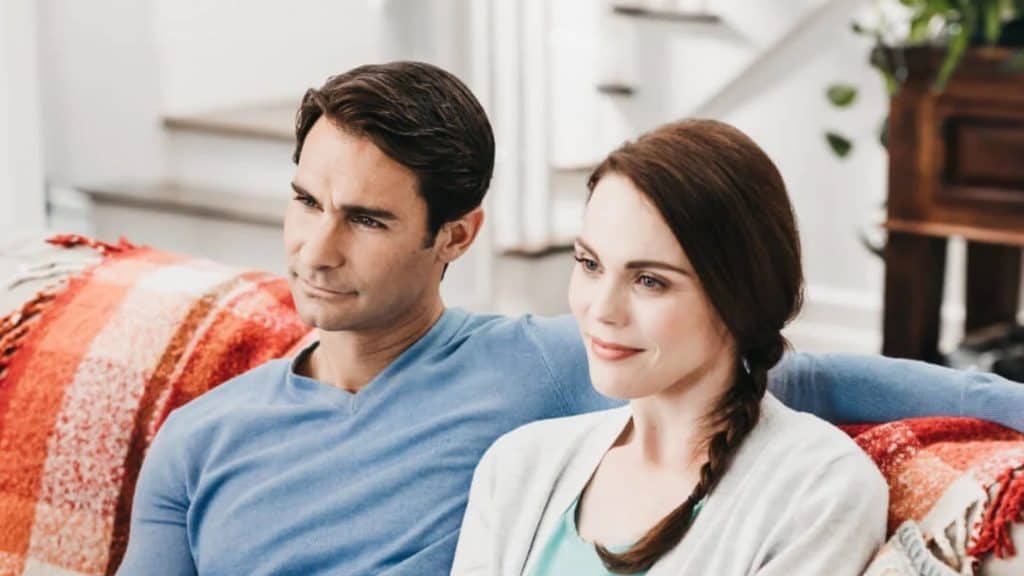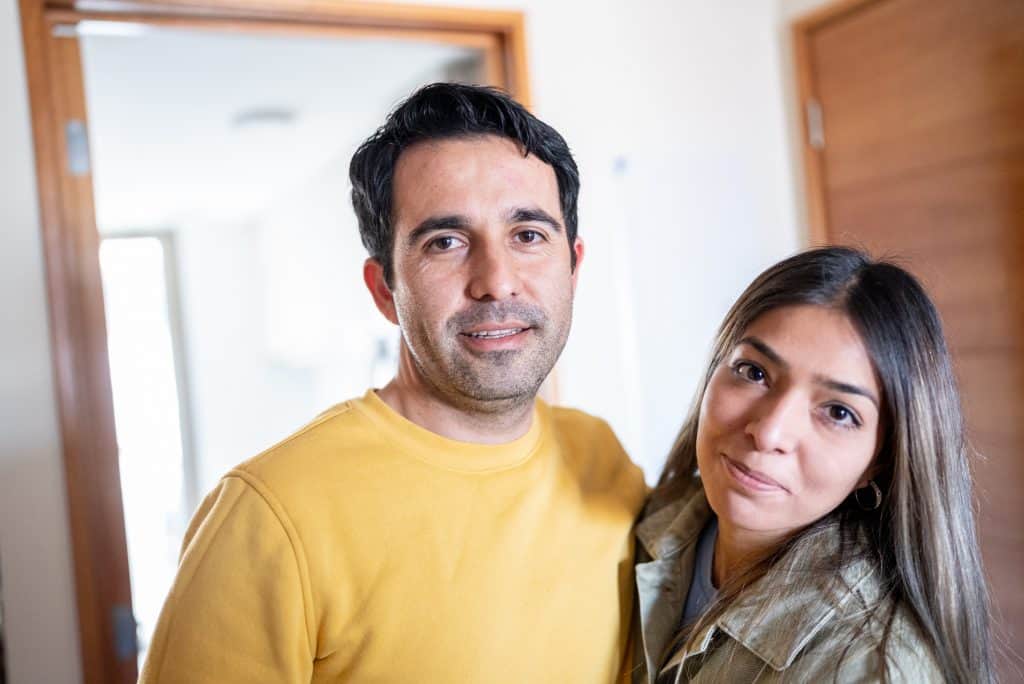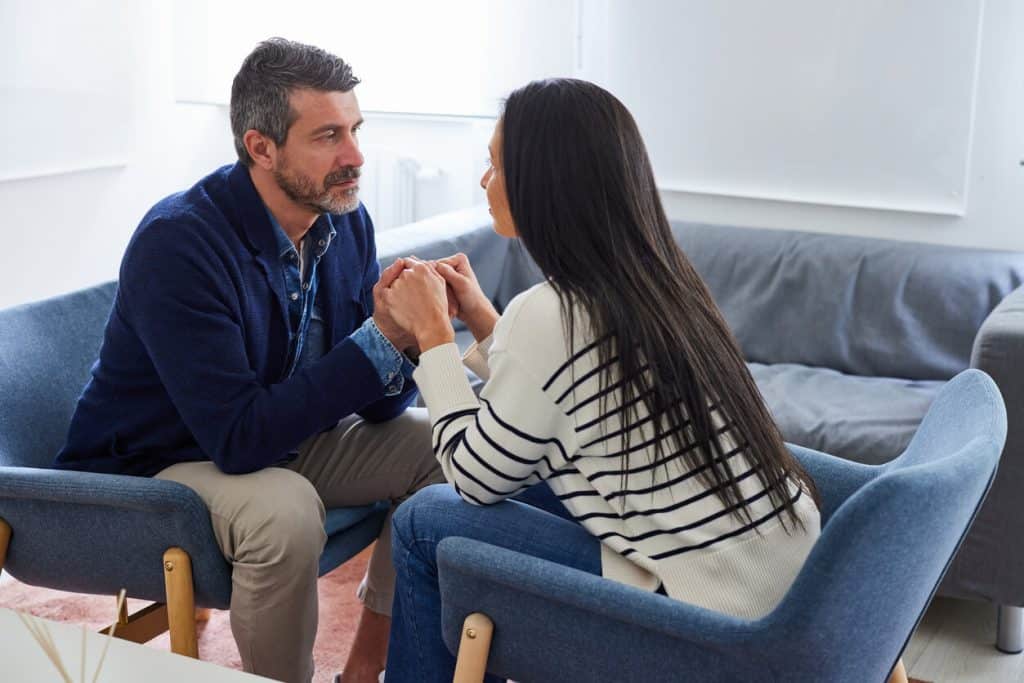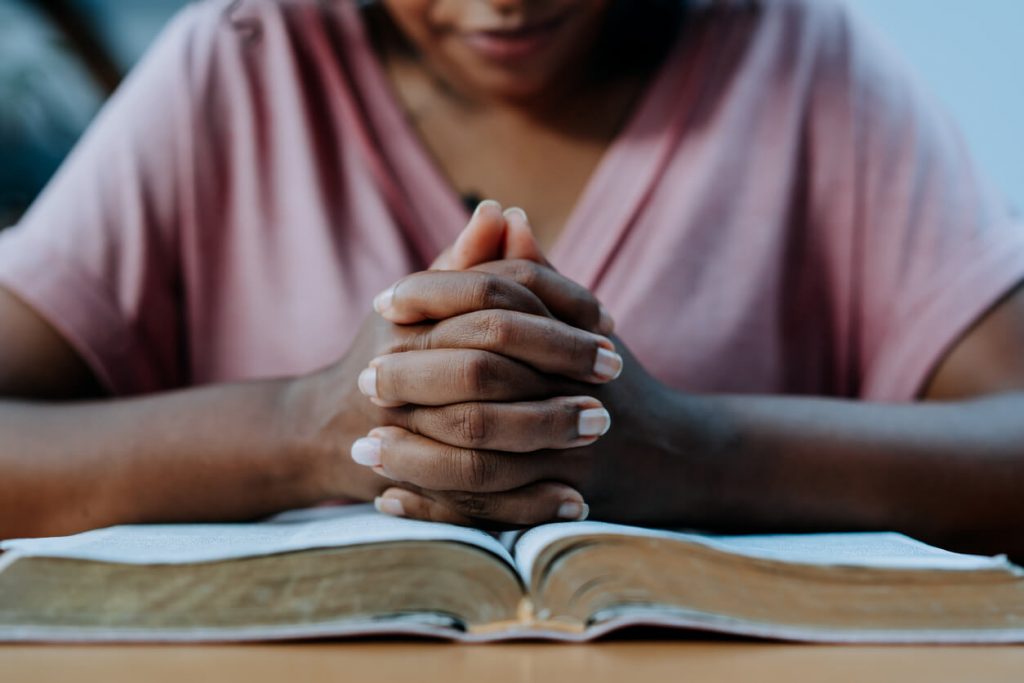“Two people are better off than one, for they can help each other succeed. If one person falls, the other can reach out and help. But someone who falls alone is in real trouble. Likewise, two people lying close together can keep each other warm. But how can one be warm alone? A person standing alone can be attacked and defeated, but two can stand back-to-back and conquer. Three are even better, for a triple-braided cord is not easily broken.”
-Ecclesiastes 4:9-12“Anything that promotes a sense of isolation often leads to illness and suffering, while that which promotes a sense of love and intimacy, connection and community, is healing.”
-Dean Ornish
When I discovered my husband was a sex addict, the last thing I wanted was to be around other people. But the pain was so extreme I was willing to do anything to make it stop.
When I was encouraged to join a support group, I decided to try it out even though I didn’t see myself as a “group therapy” person. My first experience wasn’t good, but I didn’t give up and eventually found a very helpful, coach-led phone group.
I had many fears about sharing what I was going through with my friends and family. Would they think I caused my husband to seek sexual gratification elsewhere because I wasn’t pretty enough, didn’t have sex with him enough, or wasn’t exciting enough in bed? Would they try to tell me what to do? Would they lose respect for me because I hadn’t left yet? Would they turn on him and think he was evil, a pervert or unforgivable, making things harder for me in the long run if I decided to stay? How would the fact that I “chose” a sex addict reflect on me? Would they think me naïve that I didn’t recognize the problem sooner?
On many occasions, some extra “me time” and time alone with God was just what I needed. But over time I learned that I’d never heal if I isolated myself from people. I felt like I’d die if I kept holding this inside.
So, I chose to open up to a few trustworthy women in my life. They didn’t have to fully understand, they just needed to listen without judgment. But I came to see that fellowship with other wives who had gone through similar situations was critical. Below I briefly describe five of the countless benefits a good support group will provide.
1. Support groups help you discover you are not alone
As I have spent the last six years counseling wives of sex and porn addicts, I have made a fascinating discovery. Without exception, the healing that takes place for women in my support groups happens more quickly and effectively than that which occurs in women seeing me for individual sessions. The feedback I get is overwhelmingly positive and encouraging. It’s what I call the “power of the group.” This shouldn’t have surprised me. After all, it is in line with both science and scripture.
It is difficult to put into words what happens when you put a small group of women with shared beliefs and experiences into an environment with a skilled leader or facilitator who has also been there. But I am blessed to be able to see this happen about twice a year, and I am amazed every time.
2. Support groups create connection
At first, women are overwhelmed by the realization that they finally have a place to share their feelings with people who understand their pain. But at week three or four, I begin to overhear discussions about texts exchanged throughout the week and plans being made to meet for coffee or dinner. It is common for me to hear of women who have met in my support groups to remain in contact long after the group ends.
In his book, Love and Survival: The Scientific Basis for the Healing Power of Intimacy, cardiologist Dean Ornish, speaking about the healing power of love and connection, states: “I am not aware of any other factor in medicine—not diet, not smoking, not exercise, not stress, not genetics, not drugs, not surgery—that has a greater impact on our quality of life or incidence of illness.”
3. Support groups provide a safe space to share your story
Although I do encourage women to risk opening up to at least one trustworthy person in their current social circle, the truth is that you will have to be careful with your words, at least at first. There are stereotypes and assumptions to consider. Sadly, some of the fears I listed in my story above are valid. With a good support group, there is no risk. We’re all in the same boat.
In order for community groups, support groups, or therapy groups to be helpful, they must provide a safe space for women to share their stories. This means there must be an environment of love and acceptance. You may have to try out more than one before you find one where you feel comfortable. Unless your gut tells you a particular group is more harmful than helpful, I encourage you to try a group at least three times before deciding if it’s right for you.
I do not personally recommend COSA or S-ANON, two popular 12-step fellowships for partners of sex addicts, because of their refusal to abandon the outdated co-addict model and embrace newer research supporting a trauma-approach to treating partners of sex addicts. However, if you’d like to give them a shot simply as a way of finding other partners to interact with, by all means do so. I understand the meetings vary quite a bit from city to city and state to state.
Celebrate Recovery is another 12-step program that is Christian based. Because of the codependency focus, I don’t think this is the best option for most wives of sex addicts early in the healing process, but again, try it out if you’d like. Everyone’s experience is different. I’m not a fan of the 12-steps in general for partners of sex addicts. (I love them for addicts though.) However, I do like Infidelity Survivors Anonymous (ISA) overall because they work from a trauma perspective.
You can search online for phone or web based groups. I find online forums and discussion boards to be unhelpful and discouraging most of the time. Some churches have their own support groups for wives of sex addicts. Try looking in your area to see what’s available to you.
4. Support groups provide a guided process for healing
My very favorite option, if you have something like this near you, is a therapist-led, closed group that uses a curriculum or approach based on the partner trauma model. These groups are usually short term, anywhere from a few weeks to several months. You join at the start of the group. The same women go through the group together and end together. This is how the most powerful bonding occurs. Usually no one knows each other the first day so everyone starts from the same place. By the end, lasting relationships have been formed.
In closed groups, as well as some open groups, topics are covered each week that help facilitate discussion and aid in healing. In my groups some of these topics are loss, self care, finding physical and emotional safety, boundaries, coping, and forgiveness. Weekly homework to accelerate the healing process is assigned and discussed.
5. Support groups provide accountability
I’m talking about social accountability, defined as “the process of staying answerable to your goals, dreams, and passions.” In a good support group, over time, others will reach out to you if you’re absent to make sure you’re ok. You might share a plan in group to set a certain boundary with your husband. The next week the group members will be eager to hear how it went. When you’re struggling you’ll have people to call or text who will offer a listening ear or encouraging word.
For those in the greater Houston and Katy, TX area, I start a new group about every six months. My next support group will begin January 25, 2016. It is 16 weeks long and limited to no more than seven women. You can click here to learn more.
God created us to be relational beings. We are wired for community. Whether you walk into a group eager to meet others and no longer feel alone, or whether you go in kicking and screaming like I did, push yourself to do this. It just might be the best thing you’ve ever done for yourself.
“Let us think of ways to motivate one another to acts of love and good works. And let us not neglect our meeting together, as some people do, but encourage one another, especially now that the day of his return is drawing near.” –Hebrews 10:24-25








Hello. I am 57 years old and have only been married for 3 years. I’m a Christian, but my husband is not. (don’t ask). Three days ago, I came home from the store and caught a glimpse of a pornographic woman on my husband’s computer. He immediately closed the screen and I didn’t mention it. My husband is the last person on the face of this earth that I would have ever thought would have looked at porn. I used to tell everyone that our marriage was just so easy and smooth. (the joke was on me). Plus, I asked him before we got married if he looked at porn because that was a deal-breaker for me. He assured me that he didn’t. (that was a lie).
When I saw what was on his screen, I couldn’t even speak. My insides were racing. I felt so many emotions all at once…..anger, hurt, betrayal, embarrassment, worthless, stupid, naive, sick, and alone. But oddly enough, my outside demeanor was numb and silent.
The next morning he was embarrassed and sad and apologized. I still couldn’t talk to him yet. So the next day, I asked if we could talk. Well, I’m not sure what happened from day 1 to day 3, but now he was defensive instead of remorseful. Because of his reaction, I realized that this was not a new thing, but his porn habit must be deeper and had been going on much much longer than I ever imagined.
I just want the pain to go away. I want the marriage I thought we had to be the marriage we actually do have.
I still feel emotionless. I don’t eat, I don’t talk……………..I’m literally just numb. When I promised for better or worse, I never in a million years thought porn would be part of my “worse”. I HATE THIS.
I also hate that I have no one to share this with. This is a secret sin, I won’t expose my husband0’s sin to my friends or to our family. So, I feel like I have to deal w/ it alone. I mean, I know I’m never truly alone because I have the Holy Spirit to be my Comforter, but you know what I mean.
I’m so glad I found you all for an outlet and for hope and insight and direction.
People keep saying what’s wrong? You seem like there’s something on your mind and I have to swallow my words and I can’t share my crisis with those closest to me.
I’ve said it before and I will say it again…………………I HATE THIS!!!!!!!
Hi Regina,
I am so sorry that you are going through this trial. Please know that you are not alone. I read stories every day from women who are experiencing similar pain and betrayal. Pornography is truly evil, and it destroys so many marriages. It is my prayer that your marriage is not one that is destroyed, because while it can be devastating, there IS healing and restoration. We actually just published a blog post about 6 marriages that overcame pornography. I’d encourage you to read each of them as a source of hope for you during this difficult time.
Although you don’t want to share this pain with others, I do think that in time, it is essential that you reach out and ask for help. This doesn’t need to even be a close friend or family member…it can be a church leader, a counselor, or just someone whom you consider to be a mentor. If you aren’t ready to do this yet, pray and ask God to direct you to the right person when you are ready. I have found that even in the most trying times of my life, God has always met me in my despair. He always pulls me out of the pit of darkness, even if it’s not right away. If your husband is not demonstrating a desire to change (and stop watching porn), reaching out for help is even more crucial. You can play a key part in his recovery, but you shouldn’t play the only part. 180 Recovery offers fantastic recovery groups for men in the throes of addiction.
As you seek to find comfort in Christ, I’d encourage you to check out the resources at Bloom for Women. I am praying for you! Stay strong. Keep clinging to Christ!
Blessings,
Moriah
No support groups in my area at all. There are some online but most have a fee which I have no money so I cannot join these. I.Have.No.One.
I know that Bloom for Women does have a paywall, however, I believe it’s less than $20/month. It’s well worth the investment in your wellbeing. They do have a free trial if you’d like to use that option as well.
Are there any support groups in the Phoenix Arizona area?
You might check the Pure Desire website. Also, the CSAT therapist network might be helpful. Bloom for Women is an excellent online resource if you’re not able to find a physical location near you.
Hello, Glad that I found this site. Is there any group that you can recommend near Brandon area, Tampa Florida?
When I married my husband, he was into porn but since I am against it he respect my decision and turn away from it. It was just recently when I caught him watching again, the thing is, if I don’t know him well I would have believe him that his totally out from it but for many events I caught him lying right into my face. Last week, while we were on bed I was watching Netflix and though he was sleeping, I found him watching “muted” porn, just next to me. I give up and told him as long as he’ll do it with me, but it didn’t. I asked him that once his aroused he can let go of porn and focus on me, as husband and wife I believe that intimacy is ti be shared by “us” not with his eyes on the screen.
Today, I thought he was working in his office, I caught him again watching Lesbian Porn and Just masturbated, I have been asking him on a daily basis, and he keep giving a lot of excuses, the thing that I wanted to have a child, I’m 36 years old and his 58, I’m really running of option here. Being his third wife and him as my first husband, I think pornography really gets in our marriage, and probably my dream to become a mother too. We are both Christian (or at least that’s what he wants me to believe that he is), Today- I am having doubts on him again.
As much as I want to talk about this to our friends, family or even our Pastor- I felt embarrassed. I will remain anonymous for the sake of my marriage but would like to thank everyone in advance.
Hi Maria,
I am so sorry for the pain you’re going through. Let me see if I can hook you up with some resource ideas, and maybe other readers will know of specifics for your area.
If your husband is open to getting help for himself, the Certified Sex Addiction Therapist network is a great resource for him. He might also benefit from a group like Pure Desire or Sex Addicts Anonymous.
For yourself, Pure Desire groups are also available for spouses in many places. You will also appreciate the online resources at Bloom for Women. Many churches also offer support groups for spouses as part of a recovery ministry.
I’d also encourage you to look at some of our resources on boundaries: here, here, and here.
Whatever he chooses, you can choose to be healthy and whole.
Peace,
Kay
Hello I have recently found a name to attach to why i am so depressed have anxiety low self esteem questioning my sanity it has so much to do with Betrayal trauma. I have caught my husband of 24 years on several occasions from traces of porn on different devices only to be told its not him its old or im crazy oh and I promise not to watch it anymore. He doesnt seem to have the motivation to truly take responsibility confess his secrets or to create ways to make me feel safe from being hurt by him over and over. I live in the South san Diego Tijuana area any churches groups ebooks counseling someone could recommend. Please desperate wife
Hey there.
Here the link to a directory where you can find counseling help in your area. You might also appreciate the online resources at Bloom. Consider your boundaries. Here, here, and here are articles that might help you think that through. Whatever he chooses, you can choose to be healthy and whole.
Anyone having issues finding a therapist that does not accuse you of being a co-dependent or advise you to just forgive and forget and move on? It is the most painful thing having to deal with the betrayal and being accused of producing shame whenever you feel like talking to your husband about the past. The past is taboo and never to be spoken of with the person you chose to share your life with…